Today’s column is about one of my favorite topics again: time travel. There are a couple different types of time travel here, from fixed timelines to branching worlds. There’s hard science fiction and literary fiction, but all of them involve being in multiple times or places or both.
The Unexpected Gift of Joseph Bridgeman by Nick Jones
Joseph Bridgeman has a gift—one that he’s had since he was a kid. He can “view” memories as if he’s reliving them—all the details, none of the control—but he doesn’t always get to pick what he views. And if he gets close to somebody, he’ll start viewing their memories, too, which is why he has trouble making friends. The one memory that keeps coming back to him, though, is at the fair in 1992: his sister Amy went missing, and was never found.
When Joseph finally consents to some hypnotherapy in an attempt to get sleep, Joseph finds himself able to time-travel: rather than just viewing the past, he’s in the past. (Okay, it’s a tiny spoiler, but it does say “A Time Travel Adventure” right on the cover, so when he explains earlier that viewing isn’t time traveling, you kinda figure there’s going to me more.) Naturally, his ultimate goal becomes to get back to 1992, figure out what happened to his sister, and save her. Of course, time travel is never straightforward. There are rules to Joe’s abilities, which he has to figure out—not to mention the fact that he encounters himself a couple of times and can never get over the idea that he’s the “real Joe” and the other guy is “Other Joe.”
I really enjoyed the book, particularly the way we get to know how Joe’s powers work, and how he ends up using his time traveling. However, the writing itself probably could have used a bit more editing—there were times when Joe was explaining things that he’d already explained before. I mean, maybe he’s confused from all that time traveling. And there were at least one or two places where I spotted inconsistencies—minor ones, but I think the number one rule about time travel stories is that you set your rules and then you stick to them, so that always bugs me.
Still, the overall plot was fascinating and kept me reading to find out how it all turned out. I’m not a huge fan of using Amy’s disappearance as a way to jump start Joe’s story, but I did like the way that you find out more about what happened as Joe explores the past. The book sets up more adventures to come, so I’ll be keeping an eye out for the next one.
Time travel type: Can the past be changed? That’s the big question, so I won’t spoil it for you.
(Note: This one’s currently free to read through Kindle Unlimited.)
The Tourist by Robert Dickinson
At some point in the future, we figure out time travel. Some people go far back in time, hiding their identities and doing research—like obtaining original recordings of Beethoven or experiencing important events. But most people travel as tourists: the early 21st century is a popular destination, because the time travelers have revealed their existence to the world at large by then. They go back in tour groups and visit malls, try the food that they find inedible, see the sights. They see the world as it was before the Near Extinction Event (NEE)—which, of course, they do not reveal to the past. Today’s tour will involve a minor traffic incident—it was noted in the records—which is particularly exciting. But then one tourist goes missing.
Spens is the tour guide on this particular tour, and he quickly finds himself entangled in weird conspiracies. His client isn’t who she appears to be, and the future records only say so much. A mysterious figure from his past shows up, giving vague hints and directions. Meanwhile, the client—who may have more than one name—has her own agenda.
The story jumps between the two characters (which I found a little confusing at first), but one story is taking place in the early 21st century, and the other is taking place in the future—and the two intertwine in intriguing ways. Dickinson doesn’t spell out everything for you: there’s slang and jargon that you figure out as you go, and you begin to piece together what this world is like, what it will be like, from little hints and clues. I really loved the world that he built, including the way the 21st-century people react: there are those who love the visitors and want to be like them, and those who can’t stand them and have all sorts of conspiracies about them.
Meanwhile, you’re also trying to follow the mystery—who is this client? What is she up to? Is she the one that causes the NEE, or is she trying to prevent it? The ending, alas, does not tie up everything in a nice, neat bow, but the trip is still well worth taking.
Time travel type: the timeline is set, but many details are unknown or intentionally withheld by those in the future, allowing for agency.
The Flight of the Silvers by Daniel Price
This book isn’t new—it’s been around since 2014—but I just read it so I could start the sequel, The Song of the Orphans, which will be released this week. They’re both hefty books: the first clocks in at just over 600 pages; the sequel is over 700 pages. But the first book was a wild ride, and I’m excited to see what comes next.
On a summer day in July, our world comes to an end: a flat white sky falls, wiping out everything except for a few people who have been given strange silver bracelets by otherworldly visitors. Six survivors from our world find themselves in an alternate version of America, in which a Cataclysm wiped out New York City but led to advances in time manipulation. The latest results of that research has brought these “Silvers” into the world, where physicists are eager to study them and the strange abilities they’ve begun to manifest. Those scientists aren’t the only ones who want to meet the Silvers, though: a group of people with similar abilities is out to eliminate them, and the Silvers don’t know who they can trust—sometimes, not even each other.
I don’t want to share all of the abilities, but Price has come up with a fun batch of superpowers and tied them all together as based on time. There is time travel, of a sort, though most of the story is not strictly about time travel. Even though it’s a huge book, it kept me engaged, and I’ll be diving into the second book soon.
That said, it’s not without its flaws. Price sometimes uses (and reuses) phrases that seem odd to me—and I don’t just mean the new terminology for his Altamerica—though that terminology is fun. He also seems to have a fixation on physical appearances, particularly for his female characters, which can border on creepy particularly when it’s not intended to. (There is a character who is intended to be a creep, and he does it extremely well.) So the writing can be a little uneven in places, but the story is exciting and action-packed.
Time travel type: parallel worlds, branching worlds.
If you’ve ever seen the film Sliding Doors starring Gwyneth Paltrow, you’ll have an idea of how this book plays out. Patricia Cowan is old and confused: she’s in a nursing home, and she remembers her four children with her husband Mark … and she also remembers not marrying Mark and raising three children instead. She remembers major world events that did and didn’t happen: Kennedy’s assassination, a nuclear exchange with Russia.
The book soon takes us back to her childhood, growing up in England during World War II—these events have only one version—and then when her paths diverge. The chapters then alternate between her two lives, going in very different directions. And it’s not just her own life that is different, but the entire world is different, too: one is ravaged by war, and one finds more peaceful resolutions to conflicts.
I enjoyed the way the diverging paths were handled in the romantic comedy Sliding Doors; Walton’s take on it is literary fiction with a feminist bent, and it’s beautiful and thought-provoking. The two versions of Pat’s life (or is it Trish?) play out with differing degrees of freedom and responsibility in both her work life and personal life, and by the time she winds up in the nursing home in 2015, her memories have started to overlap—she exists in both versions at once, allowing her to reflect on how her decisions have played out over the course of her long life.
GeekDad Robin Brooks read My Real Children much earlier than I did (at least in this version of our world), and wrote about it in a Stack Overflow column about parallel worlds.
Time travel type: One woman with memories of two branching worlds.
The Punch Escrow by Tal M. Klein
The year is 2147: technology has advanced a bit, with nanotechnology taking care of most of our health and aging problem, genetically engineered mosquitoes to control carbon emissions, our phones are now implanted in our brains, and—exciting!—we’ve finally figured out teleportation. It’s not cheap, of course—just because we have planes now doesn’t mean that everyone can fly first class any time they want. And, oh, there’s a religious sect that condemns teleportation and is trying to take down International Transport, the company that handles transportation (and is, incidentally, the most powerful corporation on earth).
Joel Byram earns a living by training AI to be more human (mostly by telling them jokes), and he’s concerned about his marriage to Sylvia, whose work with International Transport commandeers more and more of her time and attention. They decide to take a second honeymoon to Costa Rica—a week off, no work responsibilities—but something goes wrong during teleportation, setting off a chain of events that soon has Joel fighting for his life.
I can’t really say much more without giving some spoilers, though the blurb on the back of the book spills some secrets that you don’t find out until about 90 pages in. (I’d recommend avoiding the blurb.) However, I will say that I did pick up on the hints Joel gives, coupled with other analyses of teleportation I’ve seen in the past, and you might too. Suffice to say that teleportation can lead to pretty weird consequences.
I really enjoyed The Punch Escrow, though Klein handles info dumps through some lengthy footnotes and sometimes repeats himself—but probably you’ll want to read the footnotes anyway because that’s where a lot of the tech is explained. The book won the Inkshares Geek & Sundry Hard Science Fiction contest last year, and is due out at the end of this month. If you like hard science fiction and geeking out about future tech (and tech gone wrong), it’s definitely worth a read.
Time travel type: Okay, it’s not traveling through time, but through space—but there are time-related consequences.
A World Without You by Beth Revis
And here’s my current read—I’ll follow up on this one when I finish. I really enjoyed Beth Revis’ Across the Universe YA trilogy, and so I was excited to see she had a book that involved time travel. Bo attends Berkshire Academy, a school for “troubled” youth where he has classmates that talk to ghosts, move things with their minds, or create flames from their fingertips. His own talent (or curse)? Traveling through time. Bo can see timelines like colorful strands that weave together, and touching a moment in the past will take him there. But Sofia, his girlfriend, is stranded in the past, and he is determined to bring her back.
One question, though, is whether Bo is really traveling through time, or if it’s all in his head … but I haven’t gotten that far yet. And if his abilities aren’t real, then what happened to Sofia?
Time travel type: X-men type mutant ability? Or just a delusion?
If you’d like more books about time travel and parallel worlds, check out these Stack Overflow columns:
- Stack Overflow: It’s About Time
- Stack Overflow: Out of Order
- Stack Overflow: Wibbly-Wobbly, Timey-Wimey
- Stack Overflow: Sliding Doors and Parallel Universes
Disclosure: I received review copies or advance reader copies of these books.
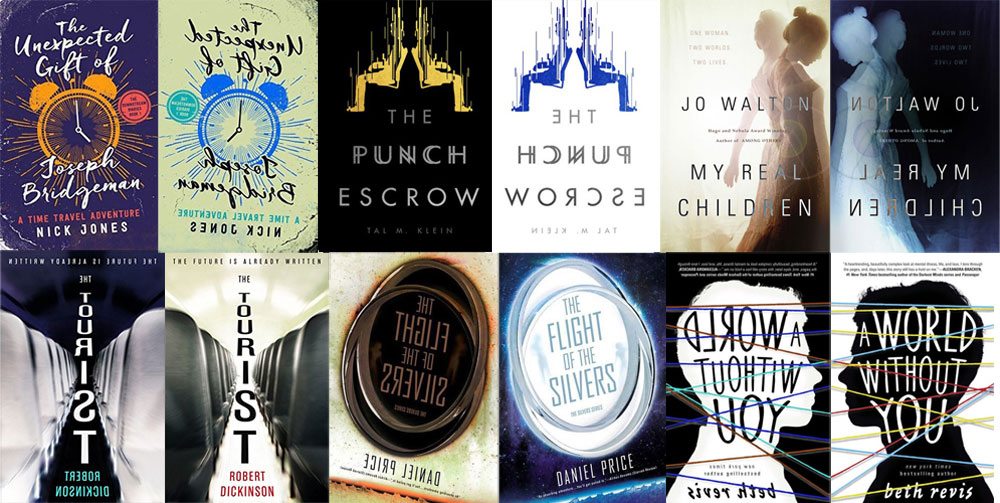


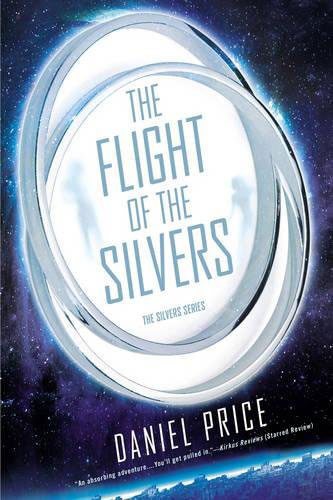

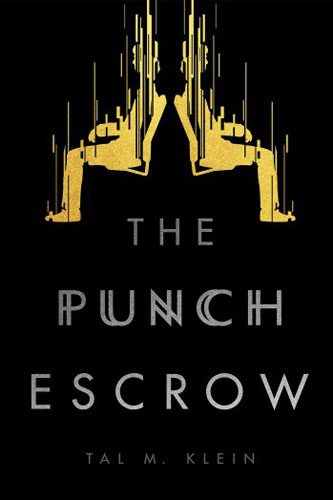
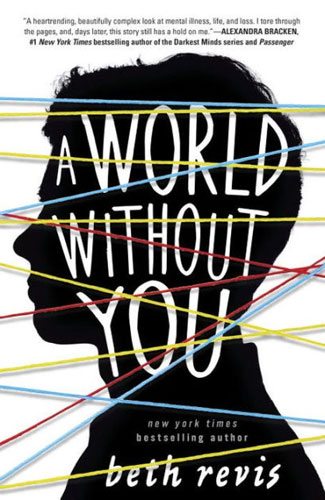


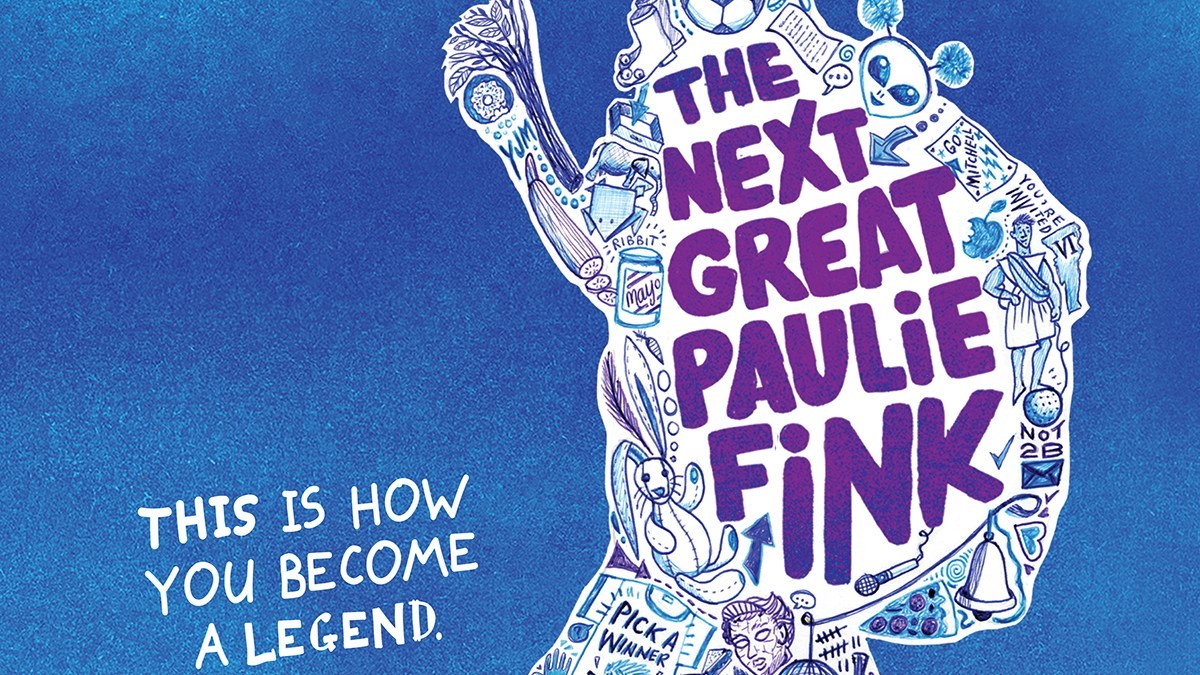
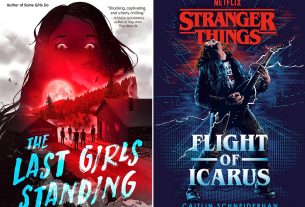
Thanks, Johnathan. I’m glad you enjoyed The Punch Escrow!